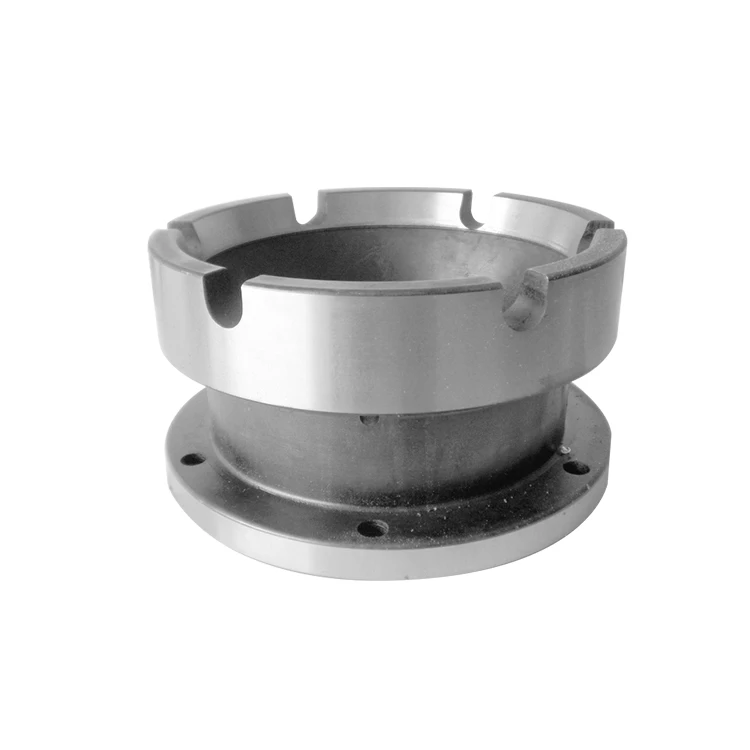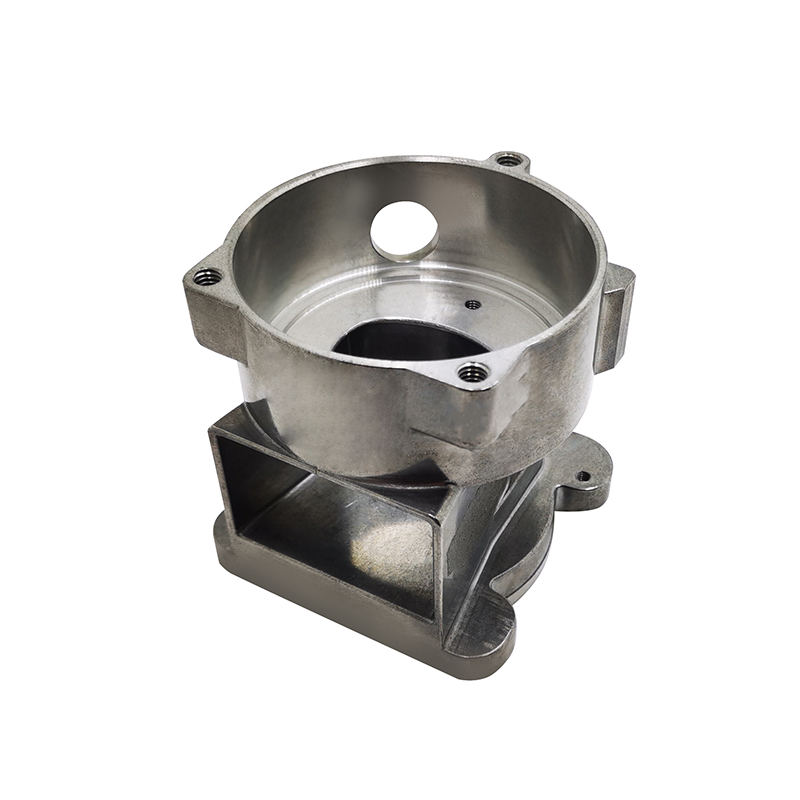Aluminum casting and its role in automotive advancements
Exploring the Ingenious Processes Behind Modern Aluminum Foundry Procedures
Modern aluminum foundry procedures are undergoing considerable transformation. Automation and AI are improving production approaches, enhancing both effectiveness and accuracy. The integration of 3D printing is simplifying mold creation, while sustainability methods are coming to be much more vital. Each of these innovations plays an essential role in redefining the market. However, the effects of these adjustments expand past plain manufacturing performance. What challenges and possibilities lie ahead for light weight aluminum shops in this advancing landscape?
The Role of Automation in Light Weight Aluminum Foundries

Automation adds to boosted safety and security requirements within the factory atmosphere. By transferring unsafe jobs to makers, human workers can focus on supervisory functions and quality assurance, reducing the risk of crashes. In addition, information analytics stemmed from automated procedures supply important insights right into operational efficiency, resulting in far better decision-making and continual improvement. As the demand for light weight aluminum items grows, the adoption of automation innovations will likely increase, further transforming the landscape of aluminum shop procedures.
Innovations in Spreading Technologies
Recent advancements in casting technologies are changing aluminum shop operations. Advancements such as 3D printing integration, progressed alloy formulas, and automated procedure optimization are improving performance and product top quality. These developments are pivotal in fulfilling the developing needs of the industry.
3D Printing Combination
Incorporating 3D printing technology right into light weight aluminum foundry operations has actually transformed typical casting methods, improving both performance and precision. This cutting-edge method enables for the fast manufacturing of complicated molds and cores, significantly decreasing preparations and material waste. By utilizing additive production, factories can create elaborate geometries that were previously tough or impossible to attain with standard techniques. The versatility of 3D printing also enables quick style alterations, cultivating an extra agile production process. On top of that, this combination sustains the usage of light-weight frameworks, which is significantly crucial in sectors such as auto and aerospace. As light weight aluminum shops proceed to adopt 3D printing, they place themselves at the forefront of technological innovation, driving enhancements in item top quality and functional abilities.
Advanced Alloy Formulations
The growth of advanced alloy formulations has actually significantly enhanced spreading modern technologies in light weight aluminum foundry procedures. These solutions incorporate various elements, such as copper, magnesium, and silicon, to improve mechanical buildings and thermal resistance. By customizing the structure of light weight aluminum alloys, producers can accomplish specific efficiency qualities that satisfy the demands of varied applications, from automotive elements to aerospace structures. Using sophisticated alloys additionally adds to minimized weight and increased stamina, which are vital consider contemporary design. Additionally, innovations in alloy advancement enable much better fluidness during casting, leading to boosted surface coatings and lowered flaws. Overall, advanced alloy formulas stand for a significant leap onward, placing light weight aluminum foundries to fulfill the advancing demands of different markets successfully.
Automated Process Optimization
Advancements in casting modern technologies have led the means for automated process improvement in aluminum factory procedures. By integrating sophisticated software application and real-time data analytics, shops can now enhance production processes and improve top quality control. Automated systems keep track of variables such as temperature level, pressure, and cooling rates, allowing for immediate adjustments that decrease flaws and waste. In addition, artificial intelligence algorithms evaluate historical performance data to predict suitable settings, consequently raising performance and reducing cycle times. Robotics likewise play a considerable duty, handling repetitive tasks that enhance safety and precision. In general, these developments not only drive functional effectiveness but additionally allow factories to meet the growing need for high-quality light weight aluminum components in numerous markets.
Smart Manufacturing and Market 4.0 Integration
The integration of Smart Production and Sector 4.0 within light weight aluminum factories is transforming functional performance. By leveraging IoT modern technologies, automation, and robotics, factories can maximize production procedures and minimize downtime. Additionally, information analytics gives critical understandings that enhance decision-making and drive continuous renovation.
IoT in Factory Procedures
As producers significantly accept the Web of Things (IoT), factory operations are experiencing a transformative shift in the direction of smart manufacturing and Sector 4.0 combination. aluminum casting. IoT innovations allow real-time data collection and evaluation, improving decision-making processes and functional effectiveness. Sensing units and connected devices keep an eye on try this web-site equipment efficiency, product use, and environmental problems, permitting positive upkeep and resource optimization. This connection cultivates a more nimble manufacturing environment, where modifications can be made swiftly in action to market needs. Furthermore, IoT helps with boosted traceability and quality control, as data from the whole manufacturing cycle can be easily accessed and assessed. In general, the integration of IoT in shop operations substantially boosts efficiency and drives innovation in light weight aluminum production procedures
Automation and Robotics Assimilation
Automation and robotics combination is reinventing light weight aluminum foundry procedures by boosting performance and accuracy. This transformative approach enhances procedures such as molding, putting, and ending up, reducing human error and enhancing output consistency. By utilizing advanced robotic systems, foundries can achieve greater manufacturing rates while keeping rigorous top quality standards. Automated systems also enable real-time monitoring and adaptive control, permitting swift modifications to production parameters. In enhancement, the combination of robotics reduces labor expenses and reduces safety and security dangers connected with hands-on handling of liquified steel. As shops embrace clever manufacturing concepts intrinsic in Market 4.0, the harmony between automation and robotics solidifies their one-upmanship, paving the method for lasting growth and development in the aluminum spreading industry.
Information Analytics for Performance
Harnessing data analytics considerably enhances performance within light weight aluminum factory procedures, straightening with smart production and Market 4.0 principles. By leveraging real-time information collection and evaluation, shops can check manufacturing processes, anticipate devices failings, and optimize resource appropriation. This data-driven method assists in informative decision-making, allowing supervisors to recognize bottlenecks and enhance operations. Additionally, predictive analytics equips foundries to prepare for market demands, therefore lowering waste and ensuring timely item delivery. Integration of data analytics with IoT tools enhances operational visibility, fostering an aggressive upkeep culture. Inevitably, applying these advanced analytical strategies not only enhances efficiency however likewise drives advancement, placing light weight aluminum factories to fulfill the developing demands of the market while keeping one-upmanships in a rapidly changing landscape.
Sustainable Practices in Aluminum Casting
While the light weight aluminum casting market has typically dealt with environmental difficulties, lots of foundries are now taking on lasting methods to minimize their impact (Precision aluminum casting). A considerable emphasis has actually been on recycling light weight aluminum scrap, which not just minimizes waste however likewise conserves energy contrasted to primary aluminum production. Innovative melting modern technologies, such as induction heaters, improve energy performance and lower greenhouse gas discharges
Furthermore, factories are executing closed-loop water supply to lessen water usage and minimize thermal contamination. Using eco-friendly binders in mold-making processes is gaining grip, further reducing unsafe emissions.
Additionally, some centers are buying renewable resource resources to power operations, straightening with global sustainability goals. By incorporating these methods, the light weight aluminum casting sector is evolving towards an extra eco accountable future, showing that financial growth can exist side-by-side with environmental stewardship - Aluminum Foundry. These efforts show a commitment to sustainability and the value of environmental responsibility in production
Quality Assurance Innovations
As the aluminum spreading sector advances towards sustainability, the value of quality assurance advancements becomes progressively evident. Modern aluminum factories are taking on advanced innovations to enhance their top quality guarantee processes. Techniques see here now such as real-time surveillance and data analytics allow suppliers to identify incongruities and issues early in the manufacturing cycle. Carrying out automated evaluation systems furnished site here with maker learning algorithms warranties that items meet rigid quality criteria while reducing human error.
In addition, the assimilation of non-destructive screening techniques, such as radiographic and ultrasonic evaluations, gives much deeper insights right into the honesty of castings without harming the material. These developments not only enhance item dependability however additionally decrease waste, lining up with sustainability objectives. On top of that, the fostering of standardized top quality frameworks assists simplify procedures throughout different shops, assuring uniformity in result. Jointly, these developments are improving quality assurance, promoting a society of excellence within the aluminum casting industry.
Future Fads in Aluminum Foundry Operations
What developments exist ahead for aluminum shop procedures? The future of aluminum shops is poised for change through advancements in automation, expert system, and lasting practices. The assimilation of robotics and automated systems is expected to boost effectiveness and accuracy in the spreading procedures, minimizing human error and labor costs. Furthermore, AI-driven analytics will certainly enable real-time tracking and predictive maintenance, optimizing operational performance and decreasing downtime.
Sustainability remains a centerpiece, with foundries progressively taking on eco-friendly techniques, such as utilizing recycled light weight aluminum and developing low-emission melting modern technologies. Technologies in 3D printing are also prepared for to transform mold-making, permitting complex geometries and minimized product waste. As the sector embraces digitalization, data-driven decision-making will certainly come to be pivotal, making it possible for foundries to respond promptly to market needs. Jointly, these fads promise to redefine light weight aluminum foundry procedures, making them extra efficient, sustainable, and versatile to future difficulties.

Frequently Asked Questions
What Safety Steps Are Applied in Light Weight Aluminum Foundry Operations?
Aluminum factory procedures implement various precaution, consisting of personal protective devices, ventilation systems to handle fumes, normal safety and security training, emergency situation action strategies, and rigorous tracking of temperature level and tools to avoid accidents and guarantee employee safety and security.
Just How Do Shops Handle Workforce Training for New Technologies?

What Materials Are Frequently Recycled in Light Weight Aluminum Foundries?
Aluminum foundries typically recycle scrap light weight aluminum, consisting of post-consumer products like beverage canisters, automotive components, and construction products. This reusing procedure minimizes waste and conserves sources, contributing to a much more sustainable light weight aluminum production market.
Exactly How Does Aluminum Casting Impact the Atmosphere?
Aluminum casting effects the environment through energy-intensive procedures, greenhouse gas emissions, and possible neighborhood pollution. Nevertheless, innovations in reusing and lasting methods can alleviate these effects, advertising a more environment-friendly approach to aluminum manufacturing.
What Are the Normal Lead Times for Light Weight Aluminum Casting Projects?
Common lead times for aluminum casting tasks vary substantially, usually varying from two to six weeks. Aspects influencing these timelines consist of complexity, order dimension, and material accessibility, affecting general production timetables in factory procedures.
Automation progressively plays an essential role in light weight aluminum shops, boosting efficiency and precision in the production process. Advancements in casting modern technologies have led the method for automated procedure enhancement in light weight aluminum factory procedures. Harnessing information analytics substantially boosts performance within aluminum factory operations, aligning with smart production and Industry 4.0 concepts. A considerable emphasis has been on reusing light weight aluminum scrap, which not just decreases waste yet also conserves power contrasted to main light weight aluminum production. Aluminum shops commonly recycle scrap aluminum, consisting of post-consumer products like beverage containers, automotive parts, and building and construction materials.